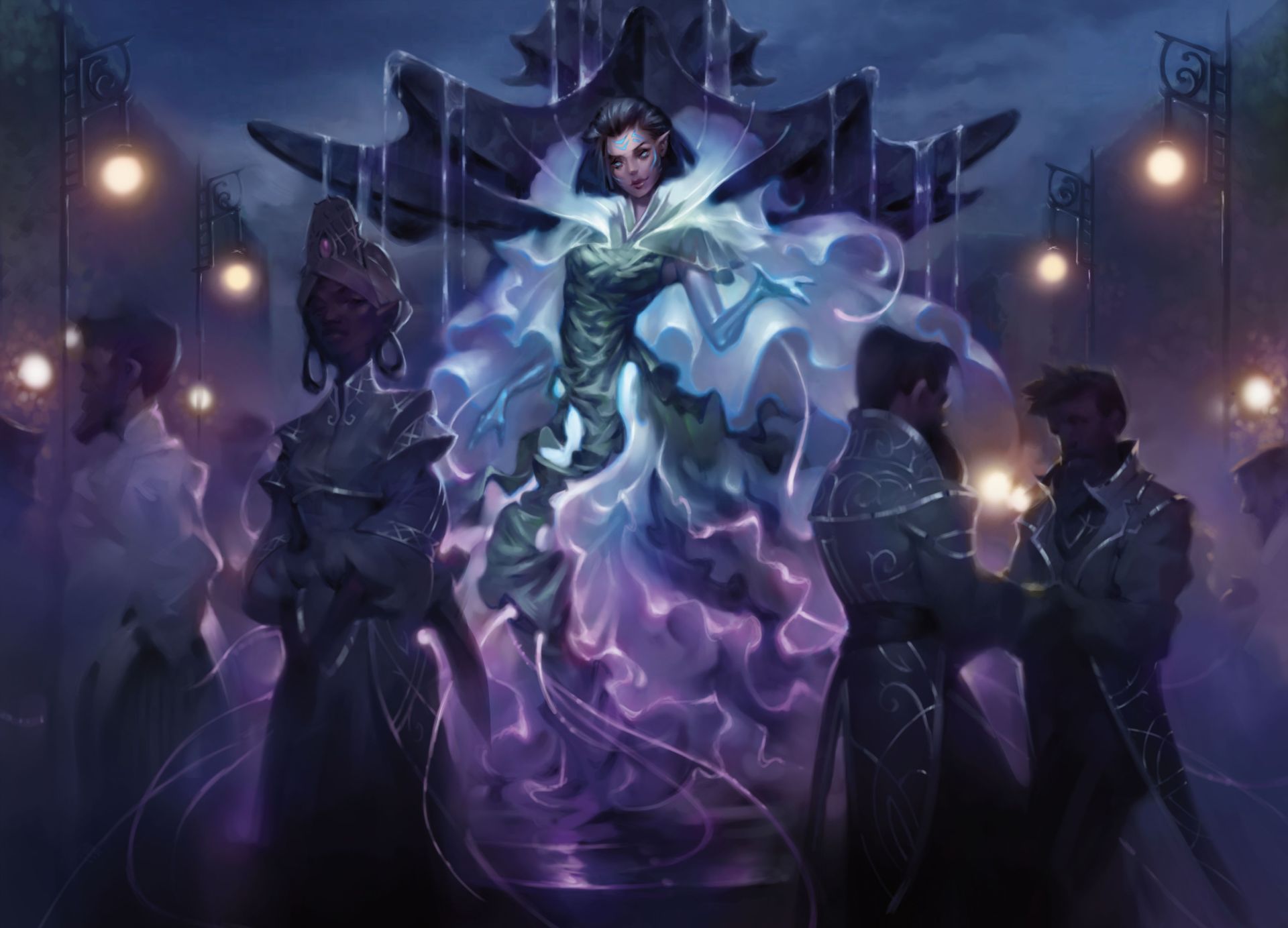Magic: The Gathering meets crime fiction in Murders at Karlov Manor
Rakdos is just a red herring.

Since the end of the Phyrexian Invasion, which was basically the Avengers: Endgame of Magic: The Gathering, the card game's expansions have hopped between some different genres of fiction. We had one set themed around fairytales and legends, and another based on pulp adventure in a jungle full of dinosaurs and pirates. Next we're going back indoors for a set themed around crime fiction called Murders at Karlov Manor, a kind of Agatha Christie take on Magic where Hercule Poirot isn't a mercurial Belgian, but is instead a wizard and maybe an elf.
Mystery's a great choice for a post-war story. Film noir came about during the post-war 1940s, and all those sleepless hard-drinking detectives with no real skills beyond their ability to shoot a gun and survive being knocked unconscious on the regular make more sense when you realize every one of them just got home from World War II. For those of us sickos who care about Magic's story, Murders at Karlov Manor makes great use of its own post-war setting—the planeswalker Kaya has has just returned to her home of Ravnica after fighting the Phyrexians to find that instead of a hero's welcome she's blamed for the city's suffering during her absence, and Ravnica's guilds are at each other's throats again now their wartime truce has ended.



For the non-sickos who care more about the rules, the structure of a murder mystery is represented in new mechanics like Disguise and Cloak, as seen on the preview card above: Vannifar, Evolved Enigma. Both let you cast cards face-down as simply "A Mysterious Creature" with 2/2 and ward, causing opponents to pay two more mana to target the cloaked creature. Cloaked cards can be flipped for their casting cost, while Disguised cards have a different cost (perhaps cheaper) you pay to dramatically reveal their identity.
Another new mechanic is Suspect, which lets you designate a creature as a potential murderer, in which case they can no longer block, but gain Menace—meaning when they attack it takes two creatures minimum to block them. There are times when you'll want to Suspect your own creatures to make it more difficult for them to be blocked, or Suspect your opponent's creatures when they're particularly good at defense. Personally I think that Amaranthine Wall looks mighty suspicious.
The final new mechanics are Cases, cards that gain an additional effect once you "solve" them by completing a certain condition, and Collect Evidence, which triggers effects once you exile a certain value of discarded cards from your graveyard. It's like you're digging through the clues, autopsying bodies and unearthing files for a big payout in the final act. On the subject of clues, the returning Investigate mechanic will let you make new clue tokens and then spend them to draw cards on later turns when you need to cash them in for an accusation in the drawing room.
If that's made you think of the board game Clue, or Cluedo depending where you're from, you're not alone. Magic's designers thought of it too and have come up with a new format called Ravnica: Clue Edition that will launch with Murders at Karlov Manor and features land cards like the Library and Secret Passage, items like the Knife and Candlestick, and Magic-ified versions of Colonel Mustard, Professor Plum, and so on. You can either win the game by correctly guessing whodunnit, where, and with what, or just by defeating the other players at the regular game of Magic you're playing at the same time.
Murders at Karlov Manor will be out on Magic: The Gathering Arena from February 6, and in paper Magic from February 9. Pre-release events will run from February 2 to February 8 at Wizards Play Network stores.
The biggest gaming news, reviews and hardware deals
Keep up to date with the most important stories and the best deals, as picked by the PC Gamer team.

Jody's first computer was a Commodore 64, so he remembers having to use a code wheel to play Pool of Radiance. A former music journalist who interviewed everyone from Giorgio Moroder to Trent Reznor, Jody also co-hosted Australia's first radio show about videogames, Zed Games. He's written for Rock Paper Shotgun, The Big Issue, GamesRadar, Zam, Glixel, Five Out of Ten Magazine, and Playboy.com, whose cheques with the bunny logo made for fun conversations at the bank. Jody's first article for PC Gamer was about the audio of Alien Isolation, published in 2015, and since then he's written about why Silent Hill belongs on PC, why Recettear: An Item Shop's Tale is the best fantasy shopkeeper tycoon game, and how weird Lost Ark can get. Jody edited PC Gamer Indie from 2017 to 2018, and he eventually lived up to his promise to play every Warhammer videogame.